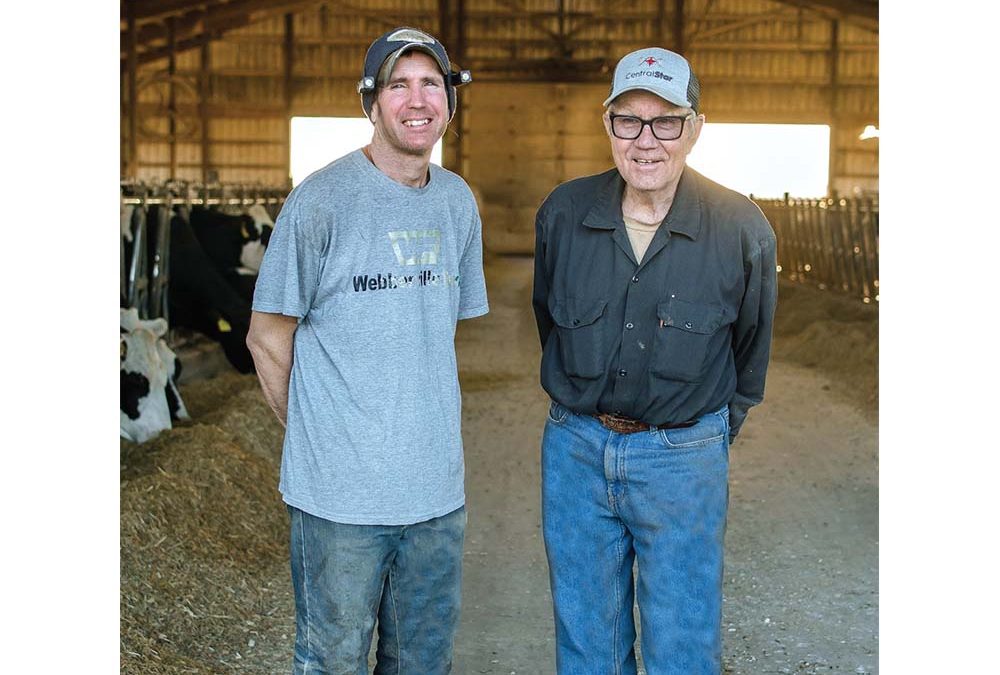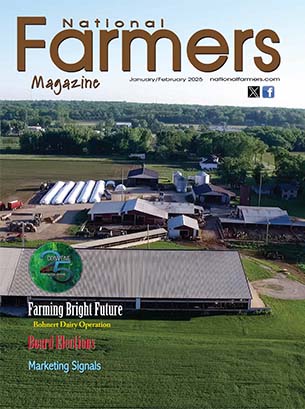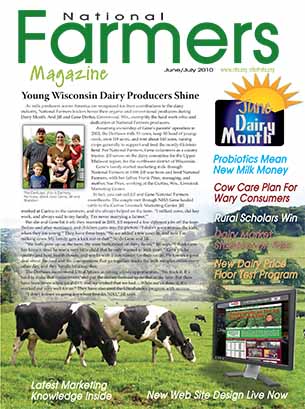Andrew and John Sweet On Their Stockbridge, Michigan Dairy Farm
By Denice Rackley
When you think of dairies, Michigan probably isn’t the state that comes to mind first. However, in 2020, Michigan ranked number one in the U.S. for pounds of milk produced per dairy cow annually — 26,875 pounds.
The Michigan Department of Agriculture and Rural Development says milk production in the state has doubled since 2000, with the number of dairy cows growing by forty percent.
One of those family dairy farms which has grown is in Stockbridge, Michigan. The Sweet family dairy farm, owned by John and Pat Sweet, expanded from milking 70 cows a day in 1997 to milking over 300 cows today.
On land once owned by Washington Irving, author of Rip Van Winkle and The Legend of Sleepy Hollow, Lamech Sweet moved his family into the farmhouse nestled on a hillside under a maple tree.
For nearly 200 years, the Sweet family has had roots in Waterloo Township. Generations of Sweets have milked cows and that tradition is continuing.
Growing up on the farm, John recalls a typical homestead farm where their family raised a bit of everything. “We had dairy cattle, chickens, pigs, and sheep.” Not unlike family farms around the country, much of the diversity sprang from the particular animals that the kids were interested in.
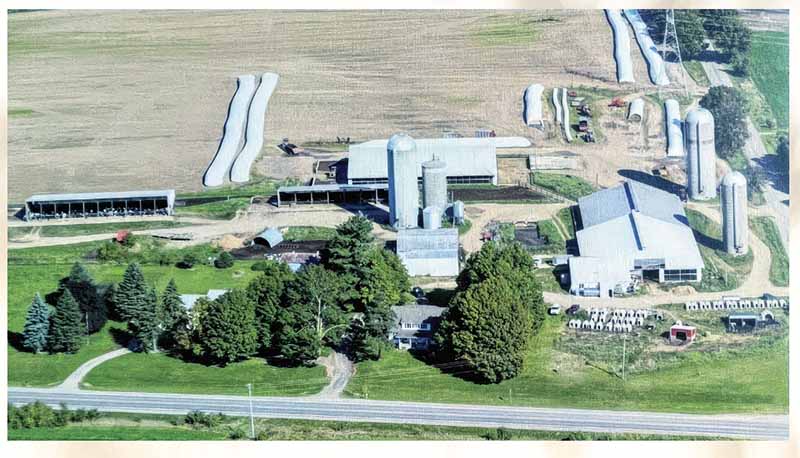
With that number of mouths to feed, all the corn raised was literally going to the pigs, so John’s dad decided the hog enterprise had to end. Imminent domain also factored into transitioning the farm out of hogs and expanding in a different direction.
With the expansion of State Road 63, all the farm buildings on the south side of the road were set to be destroyed. Having just completed a new milking parlor, this was a huge setback for his family, John remembers. Farmers are nothing if not resilient. The Sweets built new buildings on the north side of the road and began growing their dairy.
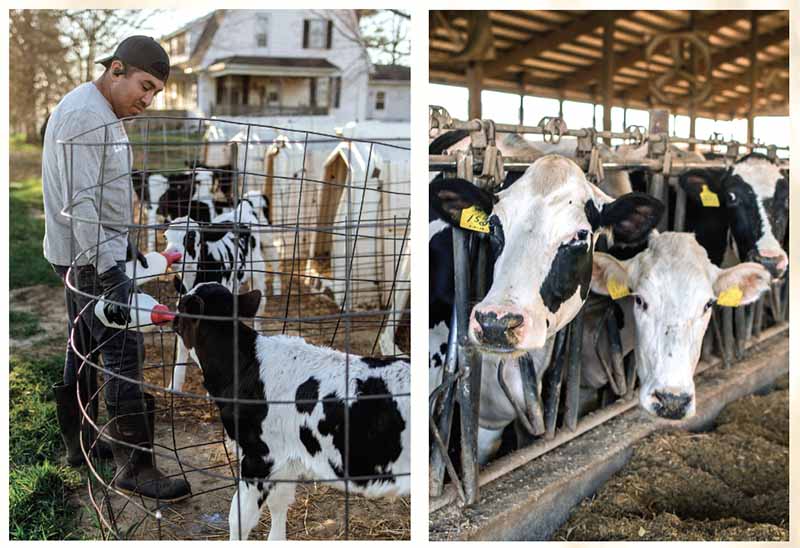
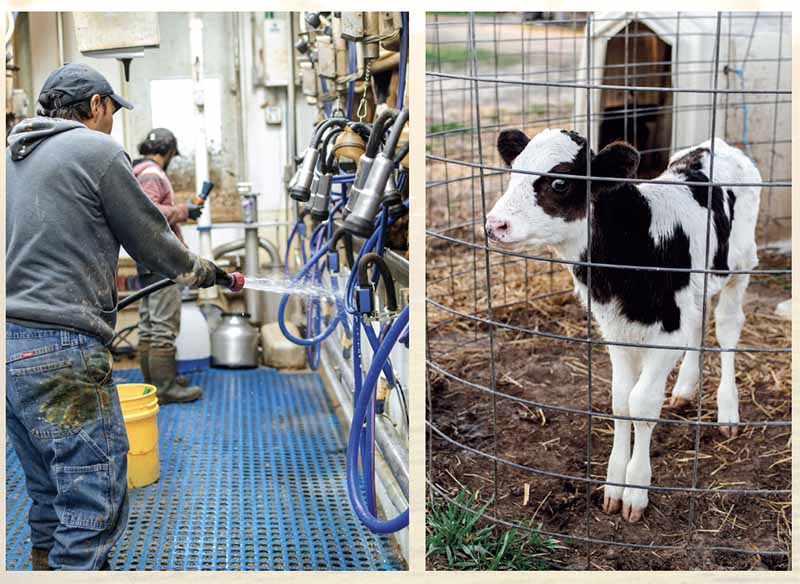
Expanding the Dairy
When John was 19, the Sweets were milking 24 cows in their newly built parlor. Expansion was in the works for both the Sweet family and their dairy.
John remained working on the farm and soon made plans for his own family with Pat by his side. As John and Pat’s family expanded, so did the number of cows they milked. Growing the operation, milking 70 Holstein cows year-round, and the fieldwork to grow corn and alfalfa for the herd, was a full-time job for the Sweets. As the kids grew and began jobs and families of their own, the Sweets maintained their milk herd.
More changes came in 1998 when their son, Andrew, finished with college and working for others, decided he would return to the farm full time. With Andrew on board, the Sweet dairy grew once again.
“I had bounced around at college, trying different majors and classes, but nothing really excited me,” Andrew noted. Chemistry, business, and animal science classes all seemed to lead Andrew back to the fact that he enjoyed the farm and cattle most of all.
Returning to the farm as the herdsman, Andrew had his hands full, but was excited about expansion. Over the last 25 years, the Sweets have quadrupled the cow herd.
“We have a small milk parlor, a double nine herringbone, and small pens coming into the parlor. To make this work, we have quite a few different cow groups that are moved through the parlor,” Andrew said.
Milking the herd and cleaning up takes about eight hours. The Sweets employ four full-time milkers — two milk in the morning and two in the evening. “We also have one guy who feeds heifers and hauls manure, and another in charge of the calves,” Andrew noted.
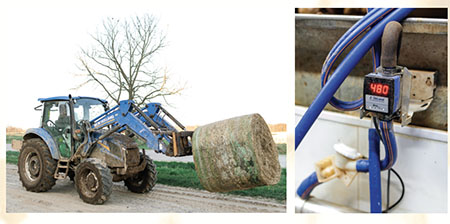
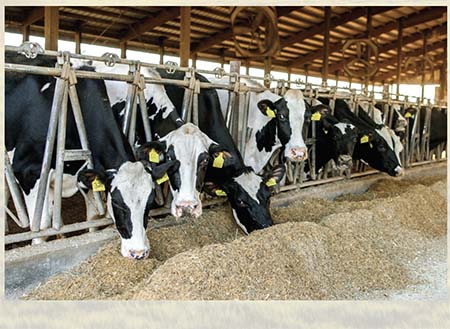
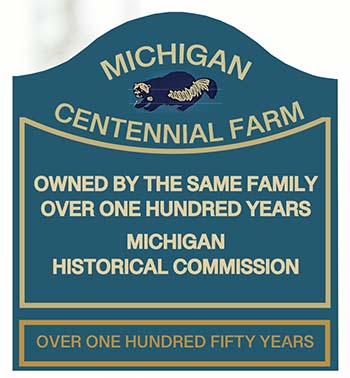
Healthy Calves Critical for Success
Having one person deal with the calves results in becoming intimately aware of each calf’s normal behavior. “Consistency leads to improved calf health,” Andrew states. He believes having one person responsible for the calves enables small changes to be noticed and addressed quickly, avoiding most health problems.
Calves are fed pasteurized waste milk, which the Sweets feel also leads to healthier calves. “The calves simply do better on pasteurized milk than on milk replacer,” Andrew said. “Not to mention, we are able to ‘market’ our waste milk through the calves.”
Because calves are always a significant investment in a dairy’s success, the Sweets have worked hard to figure out how best to handle the calf crop.
Having a separate pen and tank for cows with any off-milk makes feeding the calves a simple process. “We bought a 30-gallon pasteurizer when milk replacer costs were going through the roof,” John said. “It has more than paid for itself.” The Sweets have learned that colostrum doesn’t pasteurize well, so the fresh cows and their milk is handled separately.
The retained heifer calves are kept in hutches for two months on average, and then transitioned to group housing with outside access. Only the best milk cows are artificially bred to Holstein bulls, the remaining cows are put to Angus. “When we were growing quickly, we purchased cows, mostly Holstein, but we have some Guernsey. We raised all the heifer calves. Now, we are at the stage where we are keeping our numbers consistent, so we don’t need to raise as many heifers,” Andrew noted.
Breeding the majority of the herd to a beef bull brings in a good return for the farm. “Angus cross calves bring in twice as much as dairy calves,” Andrew said. The cross calves are kept for a week to make sure they are going well and then sold. The dry cows are kept on pasture. However, with the short northern growing season, the Sweets have found better success supplying the milking herd with corn silage, alfalfa hay, and purchased concentrates rather than trying to have the milking cows out grazing.
“Water access is tricky on pastures for much of the year. We also have quite a bit of swampy land and trees. We tried rotational grazing for a bit, but didn’t feel it was beneficial for our operation,” John said.

Partnering with National Famers
“When I came back to the farm in 1998, there were 14 dairies around Stockbridge. Now we only have one,” Andrew said. For the last 10 years, the Sweets have partnered with National Farmers Organization to market their milk.
“National Farmers has been great to work with. Kendall Lockwood is available when we need to work out an issue,” Andrew noted. “Rather than the milk truck making rounds to multiple dairies, now we fill the entire truck with our milk.”
For the foreseeable future, the milk truck will be pulling into this Waterloo Township dairy empty and leaving with a full load of Sweet milk that continues to be counted among Michigan’s growing dairy industry.


